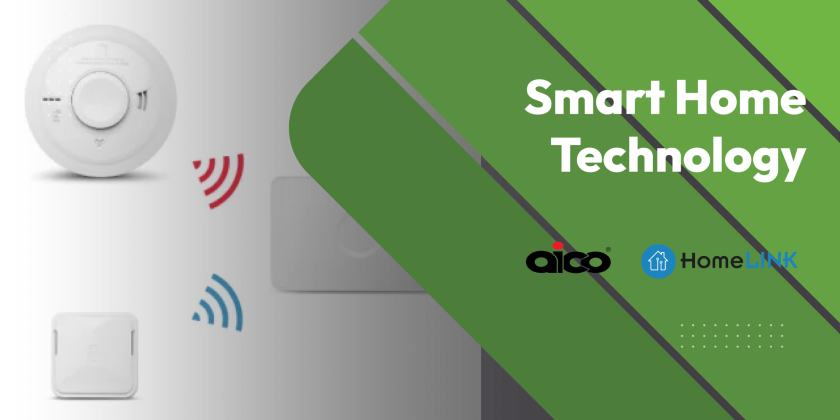When it comes to improving the energy efficiency of your home in Southampton, exploring cavity wall insulation funding can make a significant impact. Understanding how cavity wall insulation can benefit your property and learning about the available funding options in Southampton is crucial. By delving into the specifics of cavity wall insulation funding in Southampton, you can discover a practical and cost-effective way to enhance your home’s energy efficiency while saving money in the long run.
Understanding Cavity Wall Insulation
Basics of Cavity Wall Insulation
Cavity wall insulation involves filling the gap between the two layers of a wall – the inner and the outer leaf. In many UK homes, this space is left empty, allowing heat to escape and cold air to enter, leading to higher energy bills and reduced comfort levels. Installing insulation in this cavity can dramatically reduce heat loss, making your home warmer and more energy-efficient. The material used is typically mineral wool, polystyrene beads, or foam, which acts as a barrier to heat flow. It’s a straightforward process that professional installers can usually complete within a few hours, depending on the size of your house. Remember, adequate insulation can also help to reduce condensation inside the house when it’s cold outside, which is essential for maintaining a healthy living environment.
Importance of Cavity Wall Insulation
The significance of cavity wall insulation cannot be overstated. It is a key component in improving a home’s thermal performance. Homes without insulation can lose about a third of their heat through the walls, which is a substantial amount of energy waste. By insulating cavity walls, you reduce this loss, maintaining a more consistent indoor temperature throughout the year. This not only makes for a more comfortable living environment but also translates into lower heating costs. As energy prices rise, the savings become increasingly valuable. Additionally, by reducing energy consumption, you’re also lowering your carbon footprint. This helps in the fight against climate change, which is a pressing global concern. In summary, cavity wall insulation is an essential step towards making your home more energy-efficient and environmentally friendly, all while keeping your energy bills in check.
Cavity Wall Insulation Funding
Introduction to Funding Options
Cavity wall insulation funding in Southampton offers various options to homeowners seeking to improve their property’s energy efficiency. The funding opportunities range from government schemes to local council initiatives and grants from energy companies. The primary aim of these programmes is to support households in reducing their energy bills and making energy-saving improvements more accessible. Some options may cover the full cost of installation, while others might provide a subsidy that significantly reduces the outlay. Eligibility for these funding schemes often depends on factors such as household income, property type, and existing insulation. It’s important to research and understand the different funding avenues available, as this can lead to substantial savings on installation costs and ensure that the insulation project is financially viable for a wider range of residents in Southampton.
Eligibility for Cavity Wall Insulation Funding
Determining eligibility for cavity wall insulation funding in Southampton involves several criteria. Generally, the property must be privately owned or rented from a private landlord. For government grants, such as the Energy Company Obligation (ECO) scheme, criteria may include receiving certain government benefits or having a low household income. Additionally, the property should not have existing cavity wall insulation unless it is deemed inadequate or inefficient. Local council offers or other initiatives may have different eligibility requirements, such as geographic restrictions or specific energy efficiency targets. It is essential to check with the individual scheme provider for the most accurate and up-to-date information. Keep in mind that some funding programmes also perform an initial assessment to determine the suitability of your home for cavity wall insulation before confirming eligibility, ensuring that the investment will indeed lead to energy and cost savings.
Southampton’s Commitment to Energy Efficiency
Energy Efficiency Initiatives in Southampton
Southampton has demonstrated a commitment to energy efficiency through a range of initiatives aimed at reducing carbon emissions and promoting sustainable living. The city’s strategy includes encouraging residents to improve their homes’ energy performance, of which cavity wall insulation is a vital component. Local programmes, often in collaboration with the government or energy providers, provide resources and support for energy-saving measures. Educational campaigns also play a role in raising awareness about the importance of energy efficiency and the benefits of insulation. In addition to residential properties, Southampton targets improvements in public buildings and infrastructure, ensuring a comprehensive approach to energy efficiency. The council often provides information on their website outlining current initiatives, application processes, and success stories from residents who have benefited from energy efficiency improvements. This proactive stance reflects Southampton’s dedication to fostering a greener and more sustainable city for its inhabitants.
Role of Cavity Wall Insulation in Southampton
Cavity wall insulation plays a critical role in Southampton’s wider energy efficiency agenda. The city recognises that effectively insulated homes are a cornerstone in achieving its carbon reduction targets. By promoting and facilitating the installation of cavity wall insulation, Southampton is actively working to lower household energy consumption. This not only contributes to the city’s environmental goals but also supports economic sustainability by reducing residents’ energy expenses. The focus on cavity wall insulation aligns with national objectives to improve the energy efficiency of buildings across the UK. By investing in this area, Southampton is contributing to a reduction in the demand for energy, which in turn supports the wider transition to a low-carbon economy. Acknowledging the importance of insulation in the home environment, the city continues to support its residents in accessing the necessary funding and expertise to undertake these critical improvements.
Navigating Cavity Wall Insulation Funding in Southampton
How to Apply for Cavity Wall Insulation Funding
Applying for cavity wall insulation funding in Southampton is a structured process. To start, homeowners should first identify the funding schemes for which they may be eligible. Information is available on the Southampton City Council website, as well as through energy companies and government websites. Once a suitable scheme is found, the next step is to contact the scheme provider directly to request more details or an application form. Many providers require an initial survey of the property to assess its suitability for insulation; this can often be arranged through the scheme. It’s also important to gather any required documentation, such as proof of income or benefits, as this will be necessary to demonstrate eligibility. Lastly, ensure that the insulation work is carried out by an accredited installer who meets the standards required by the funding programme to guarantee the quality and effectiveness of the insulation.
Common Challenges and Solutions
When navigating cavity wall insulation funding in Southampton, residents may encounter several challenges. One common issue is understanding the complex criteria for different funding schemes. To address this, carefully review eligibility requirements or seek advice from local energy advisory services. Another challenge is the potential for a long waiting period due to high demand for funding. To mitigate this, apply as early as possible and ensure your application is complete and accurate to avoid delays. Homeowners may also face difficulties in finding qualified installers. It’s advisable to use trusted tradespeople who are registered with recognised industry bodies. Lastly, some may worry about the disruption during installation. Reputable installers will aim to minimise impact on your daily life and complete the work efficiently. If problems arise, communicate with the funding provider or the installer directly to find a resolution. Being proactive and informed can help overcome these challenges and ensure a smoother funding application process.
Success Stories and Future Prospects
Southampton’s Success with Cavity Wall Insulation Funding
Southampton’s approach to cavity wall insulation funding has led to a number of success stories, with many residents benefitting from increased energy efficiency and cost savings. The city has seen a significant uptake in the number of homes installing cavity wall insulation, driven by accessible funding and a strong public awareness campaign. This success is not only measured in the number of installations but also in the positive feedback from homeowners who have seen their energy bills decrease. Furthermore, the city’s investment in energy efficiency has contributed to job creation in the green energy sector. Looking ahead, Southampton is set to continue this positive trend with the aim of becoming a leading city in energy efficiency. Continuous improvement of funding schemes and partnerships with energy companies will play a vital role in ensuring that cavity wall insulation remains a practical and attractive option for residents.
Future of Energy Efficiency in Southampton
The future of energy efficiency in Southampton looks promising, with continued focus on innovative and sustainable practices. The city aims to build on its successes by further integrating energy efficiency into urban development and housing standards. Plans are in place to extend funding schemes and incentives to cover a broader range of energy-saving measures, beyond cavity wall insulation. The city also recognises the importance of new technologies, such as smart home systems and renewable energy sources, in achieving its long-term environmental targets. Education and community engagement remain key, ensuring that residents are informed and motivated to participate in energy efficiency initiatives. By fostering a culture that prioritises energy conservation, Southampton aspires to become a model for other cities and to play a significant role in the UK’s transition to a low-carbon future.



